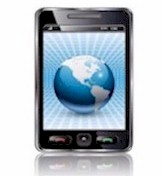|
|
DSC Tech Library
 This section of our technical library presents information and documentation relating to Internet Phone Software and Computer Telephony Integration software and products.
Computer Telephony Integration CTI software is a rich set of phone software library routines that enable application programs to control your phone system.
This comprehensive CTI software lets you increase employee productivity, enhance customer service and reduce costs by combining the capabilities of our PACER phone system with the custom functionality of your Windows, Unix or Web applications.
Data collected by your phone ACD (Automatic Call Distribution) or IVR (Interactive Voice Response) systems can be passed to your existing PC, Unix or Web applications through our phone software.
The PACER predictive dialer can automatically call your customers and pass only connected calls to your agents. With our computer telephony software, your telephone and computer work together to provide cost-saving benefits.
This section of our technical library presents information and documentation relating to Internet Phone Software and Computer Telephony Integration software and products.
Computer Telephony Integration CTI software is a rich set of phone software library routines that enable application programs to control your phone system.
This comprehensive CTI software lets you increase employee productivity, enhance customer service and reduce costs by combining the capabilities of our PACER phone system with the custom functionality of your Windows, Unix or Web applications.
Data collected by your phone ACD (Automatic Call Distribution) or IVR (Interactive Voice Response) systems can be passed to your existing PC, Unix or Web applications through our phone software.
The PACER predictive dialer can automatically call your customers and pass only connected calls to your agents. With our computer telephony software, your telephone and computer work together to provide cost-saving benefits.
Goodbye Copper Wire, Hello Internet Phone
By: Sean Sinico, DW-WORLD.DE
www.dw-world.de
The days of phone calls being jammed down copper cables are long gone. Soon, when calls aren't bouncing off cell phone towers, they'll be hurtling through the Internet -- for less than half the price of a "normal" call.
Dozens of exhibitors at CeBIT, the world's largest IT fair, which opened in Hanover on Thursday, are ready to outfit consumers with headsets, switchboards, phones and answering machines for the day when Voice Over Internet Protocol (VoIP) replaces analog and ISDN phone lines.
Andreas Gauger, head of 1&1, Germany's second largest DSL provider, after Deutsche Telekom, called 2005 "the year that will go down in history for breaking the border between the Internet and telephony."
Dozens of companies in Germany offer private and corporate Internet telephony services and the cheaper calls that accompany it.
After subscribing to a particular service, users can usually call within that network for free and calls to the German fixed-line network normally costs between one and two cents a minute. The Hamburg Internet provider Freenet has even done away with those costs for some of its VoIP packages.
Germany currently has about six million people using DSL connections to access the Internet and 330,000 of them are taking advantage of their high-speed connections to make telephone calls, according to the Association of Telecommunications Providers.
"DSL is the technology that made voice over IP possible," said Karsten Krug of AVM, the producer of the widely popular FRITZ line of devices used to connect computers to high-speed Internet services.
Telekom joins in VoIP
Transferring phone calls to the Internet could spell trouble for Deutsche Telekom, which still keeps the vast majority of Germans connected, if people begin to shy away from the former monopoly's ubiquitous analog and ISDN phone systems.
"Internet telephony is not going to bring a large growth in profits," said Rainer Beaujean, head of T-Online, the Deutsche Telekom subsidiary responsible for Internet connections. "But it is important to keep customers."
Also important to customers is being able to guarantee a certain quality of service, said Carsten Lachmann, who manned a T-Systems -- another Deutsche Telekom subsidiary -- booth at CeBIT.
"There are no guarantees on the Internet," said Lachmann, who sets up VoIP calling for corporate customers. "Anyone who tells you different is lying. If everyone on the network starts calling or downloading at the same time there are going to be problems."
DSL will keep speeding up
A typical VoIP call requires an upstream data supply of about 100 kbps, while today's DSL connections offer between 128 kbps and 392 kbps. Deutsche Telekom is planning to double download speeds to 6 megabits per second across Germany by the middle of this year and speed things up to 25 mbps in some major German cities by 2006.
"Voice over IP already has the quality of analog phones," Krug of AVM said. "Now, by increasing bandwidth, we are able to improve the quality even more."
VoIP works by encoding a caller's voice into digital data then breaking the information into small packets and sending them through the Internet to be correctly decoded at the other end by the person receiving the call.
New phones for non-tech types
Along with lower costs, better quality has taken VoIP from the domain of a few computer geeks when it first emerged about 10 years ago to the general public.
At CeBIT, AVM and other telecommunications companies are looking for ways to make Internet telephony easier for customers to use. The new high-tech phones now resemble their analog counterparts in all but the type of cable that is plugged in and the phone bill that comes at the end of the month.
"I don't notice any difference in quality between VoIP and an analog phone," said T-Systems Lachmann, who uses a DSL connection to make his phone calls. "Except, of course, that my phone bill is a lot lower."
|


 This section of our technical library presents information and documentation relating to
This section of our technical library presents information and documentation relating to